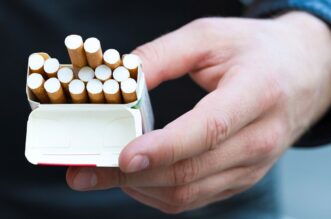Baby teeth and permanent teeth might look the same, but there are many differences between the two. The most obvious difference is the size between baby teeth and permanent teeth. Permanent teeth are bigger, but this is not where the difference between the two of them stops. There are more differences than meet the eye.
Since baby teeth differ in composition, size, and strength compared to permanent teeth, their maintenance routines are also significantly different from maintaining permanent teeth. Children’s dentists are more capable of handling baby teeth because baby teeth are only seen in children. Once children grow older, their baby teeth are slowly replaced by permanent teeth. This means that a different kind of maintenance routine should be practiced. Below are the key differences between baby teeth and permanent teeth.
Enamel Matters
Enamel is the hard white surface on your teeth. When it comes to enamel, permanent teeth naturally have thicker enamel compared to baby teeth. Having thinner enamel makes baby teeth more vulnerable to cavities. Therefore, cavities spread more easily and faster on baby teeth compared to permanent teeth. Children tend to have more problems with cavities compared to adults.
In baby teeth, the enamel on the side of every tooth is usually fragile. This makes it very difficult to bond white fillings together. Bonding white fillings becomes necessary when the enamel is lost as a result of fractures or tooth decay. To keep teeth strong and free from cavities, children should brush their teeth regularly. However, they still have to endure the entire process of having all their baby teeth replaced with permanent teeth in time.
Hard or Soft?
As you might already have guessed from the facts presented above, baby teeth are considerably softer than permanent teeth. This is why many children break their teeth when they fall or hit their heads while playing or running. However, baby teeth will eventually fall off independently because they will be replaced with permanent teeth.
Since baby teeth are softer than permanent teeth, they are more susceptible to most acids, such as those found in liquids like flavored waters, soda, and juice. If baby teeth are frequently and repeatedly exposed to these acids, they break down more easily and develop cavities faster. Grinding baby teeth will result in visible wear, which means that children should refrain from grinding their teeth to avoid damaging them.
Whiteness Level
When permanent teeth grow beside baby teeth, the contrast becomes very obvious. Baby teeth are whiter compared to permanent teeth, but baby teeth will eventually fall off naturally. Therefore, children only get to enjoy white teeth for a specific period before replacing them with permanent teeth that appear duller.
Permanent teeth are naturally yellowish. Once all the baby teeth fall off, people’s teeth look more natural because the colors are no longer in contrast with one another.
Sensitivity
Baby teeth are more sensitive than permanent teeth because baby teeth have huge pulp chambers made of nerves and nerve canals. The size of these pulp chambers is almost similar to the size of one baby tooth! Therefore, even the most minor cavities will significantly impact the nerves found in baby teeth.
If neglected, these cavities could lead to an infection or nerve inflammation. Nerve death is also possible if baby teeth are not cared for properly. These problems are generally manifested in baby teeth only because they are more fragile compared to permanent teeth.
Point of Contact
Baby teeth are shaped differently compared to permanent teeth. At the back of the mouth, baby teeth are pressed next to one another. They appear like cubes that touch one another. On the other hand, permanent teeth are round, meaning they cannot be likened to cubes touching each other. Since permanent teeth are rounded, their point of contact with the other teeth close to them is relatively smaller than the point of contact of baby teeth.
Good Oral Hygiene Is Always Necessary
Regardless of the differences between permanent teeth and baby teeth, maintaining good oral hygiene is very important. This means brushing teeth regularly and other related practices that would guarantee healthier and stronger teeth. Visiting the dentist regularly should also be prioritized. After all, dentists know how to ensure good oral health.
In addition to this, going to the dentist will also allow you to identify problems sooner to not worsen with time. Looking after permanent teeth is more crucial than looking after baby teeth since baby teeth will still be replaced. Permanent teeth, however, can no longer be replaced.









